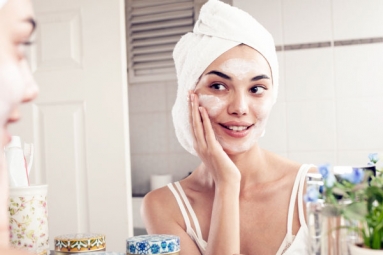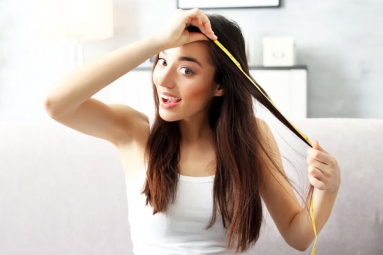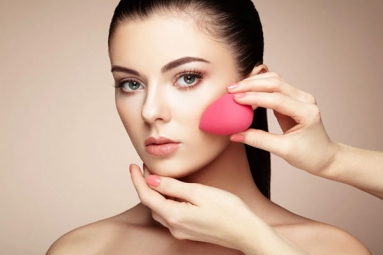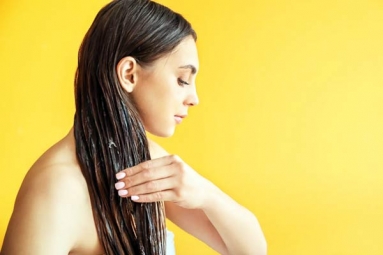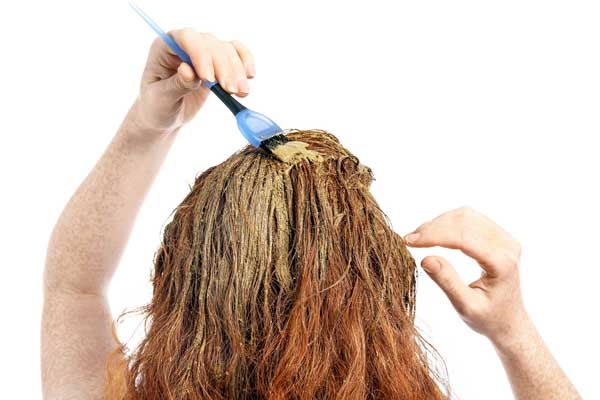
(Image source from: Canva.com)
Henna, which has a long-standing history, was originally utilized for creating body art but eventually gained popularity as a natural product for dyeing and conditioning hair. It is recognized for delivering a rich and enduring color; however, it may not be the best choice for every hair type, particularly for those with natural hair. The dye is extracted from the leaves of the Lawsonia inermis plant, which has been traditionally employed to color skin, hair, and fabrics such as wool and silk. In contrast to synthetic options like black or neutral henna, natural henna creates a lasting stain without the inclusion of artificial chemicals.
Benefits of Henna:
Natural Hair Dye: Henna provides a vibrant and long-lasting hue while avoiding harsh chemicals, presenting a safer choice compared to synthetic hair dyes.
Strengthens Hair: It helps to reinforce hair strands, resulting in stronger and thicker hair by enveloping and safeguarding the cuticle.
Promotes Scalp Health: With its anti-inflammatory qualities, henna aids in calming the scalp, alleviating dandruff, and fostering healthy hair growth.
Enhances Shine: Consistent use of henna adds a natural luster to the hair, enhancing its overall look and condition.
Balances Oil Production: Henna assists in regulating the oil levels on the scalp, benefiting both dry and oily scalp conditions.
Prevents Premature Graying: Henna naturally darkens gray hair, helping to decrease the visibility of premature graying.
Possible Hair Issues:
Dryness: If henna is not applied correctly, it can lead to dryness of the scalp and hair, which may result in breakage and hair loss. Individuals with sensitive scalps should be cautious and avoid extended application times.
Loss of Hydration: The drying properties of henna can contribute to hair becoming fragile. To mitigate this, think about blending hydrating components such as aloe vera or rose water into your henna mixture to maintain moisture levels in your hair.
Chemical Interactions: As a permanent colorant, henna can be challenging to remove. If used alongside other chemical treatments or bleach, it might compromise the integrity of the hair, leading to shedding or, in severe situations, bald spots. If you intend to dye your hair after applying henna, steer clear of products containing metallic salts or additives.
Steps for Applying Henna to Hair:
Prepare the Workspace: Put on gloves and shield your shoulders with a towel or sheet to avoid any staining.
Make the Henna Paste: Combine henna powder with water until a thick, smooth paste forms that is simple to apply.
Apply Henna: Begin placing the henna paste on your hair starting at the center and extending outward.
Secure Your Hair: After the henna is uniformly distributed, pull your hair back into a bun to keep it secure.
Cover Your Hair: Encase your hair with a shower cap or plastic bag to help retain heat.
Allow Time for Color Development: Let the henna sit for 2 to 3 hours, or overnight for a more intense shade.
Rinse Thoroughly: Remove the henna using a gentle shampoo and carefully detangle your hair with a wide-toothed comb.
When applied correctly, henna can enhance your hair care routine by adding vibrant color and conditioning effects. Nevertheless, due to its lasting nature, careful application is essential. Improper use or mixing it with harsh chemicals may result in lasting damage. Exercise caution when introducing henna into your hair care practices.



